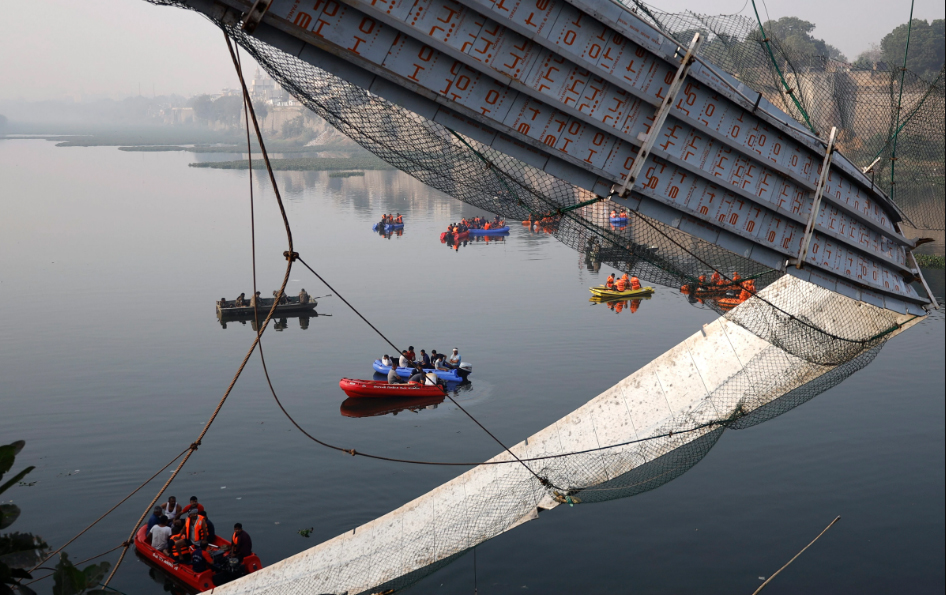Morbi: A Gujarat court has issued an arrest warrant against Jaysukh Patel of Oreva Group in connection with the October 30 bridge collapse here in which 135 persons were killed. Ajanta Manufacturing Limited (Oreva Group) was responsible for the operation and maintenance of the British-era suspension bridge on the Machchu river which collapsed. The court order against Oreva Group came after a special investigation team (SIT) formed by the Gujarat government cited several lapses on the part of the firm.
Morbi Chief Judicial Magistrate MJ Khan had issued an ‘arrest warrant’ against Ajanta Manufacturing Limited’s (Oreva Group) managing director, Jaysukh Patel, nearly a week back on getting an application for the same from police under section 70 of the Code of Criminal Procedure, said Dilip Agechaniya, the advocate representing the victims.
“As sought by the Investigation Officer of this case, Chief Judicial Magistrate of Morbi, MJ Khan, had issued an arrest warrant against Patel under section 70 of the CrPC,” Agechaniya said Monday.
The investigating officer refused to speak on the matter, while the public prosecutor and senior police officials could not be contacted.
Notably, Patel, who is not named as an accused in the FIR, had moved Morbi sessions court January 20 for anticipatory bail fearing arrest in the bridge collapse case. The hearing was adjourned till February 1 as the public prosecutor was not present.
Nine persons, including four employees of Ajanta Manufacturing (Oreva Group), have been arrested so far in the case. They include two managers and an equal number of ticket booking clerks of the Oreva Group that was managing the British-era bridge.
The suspension bridge on the Machchu river was being maintained and operated by the Oreva Group as per an agreement signed with Morbi municipality.
The SIT had cited several lapses on part of the Oreva Group in repairs, maintenance and operation of the carriageway. The lapses included no restriction on the number of persons accessing the bridge and no curb on sale of tickets, which led to unrestricted movement on the bridge, as well as carrying out repairs without consulting experts.
